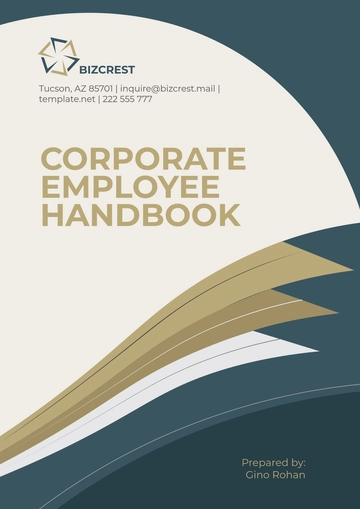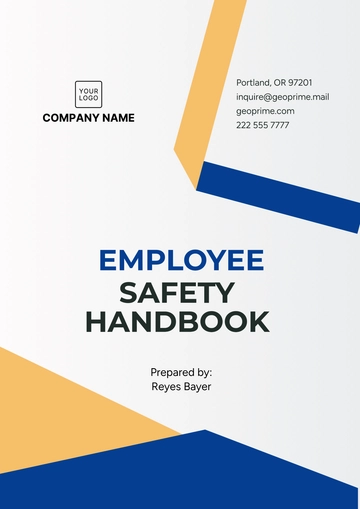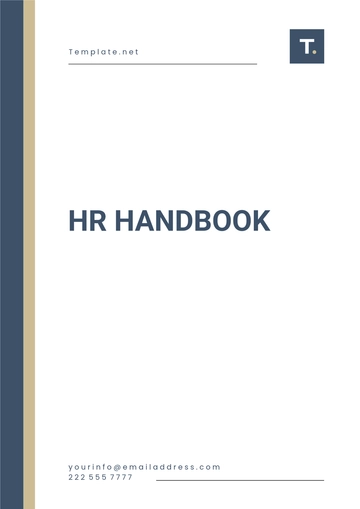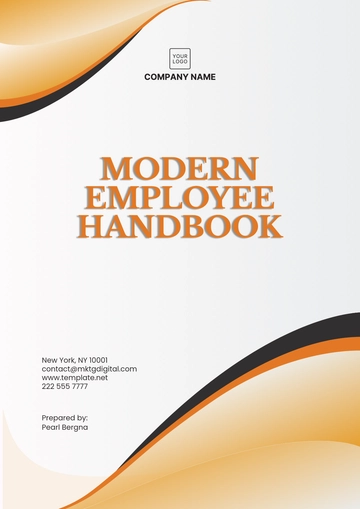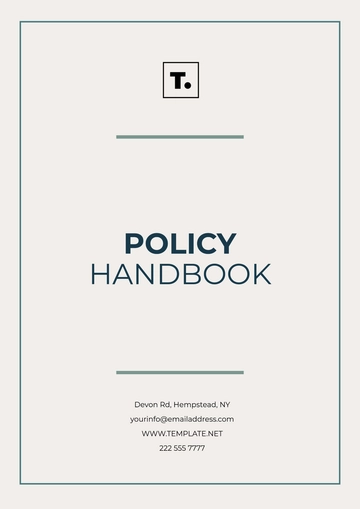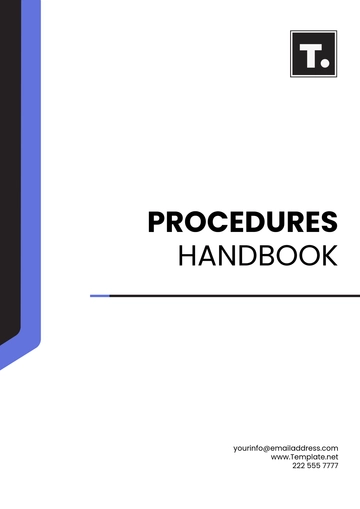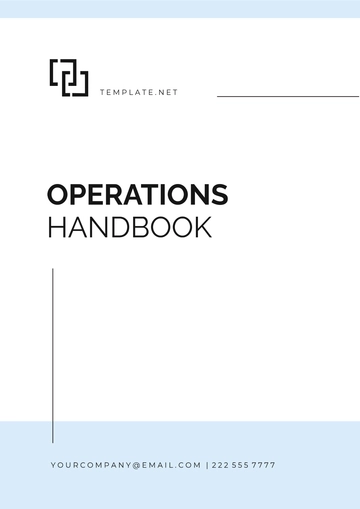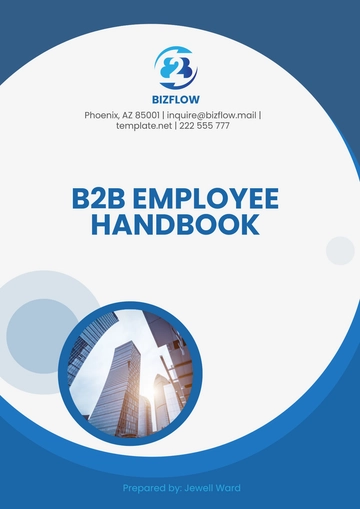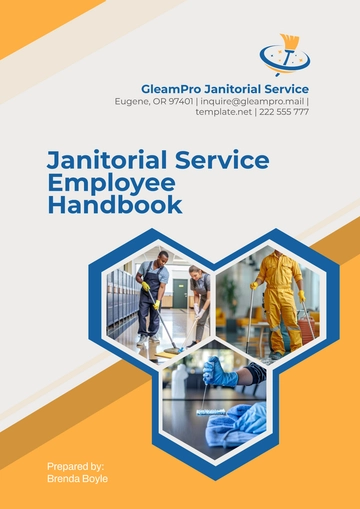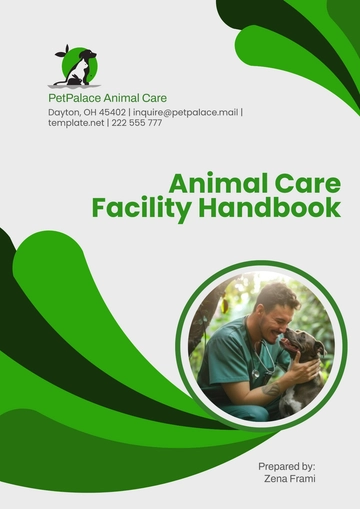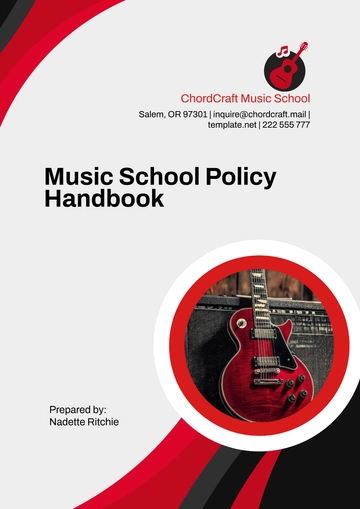Free Simple??Church Pastor Handbook
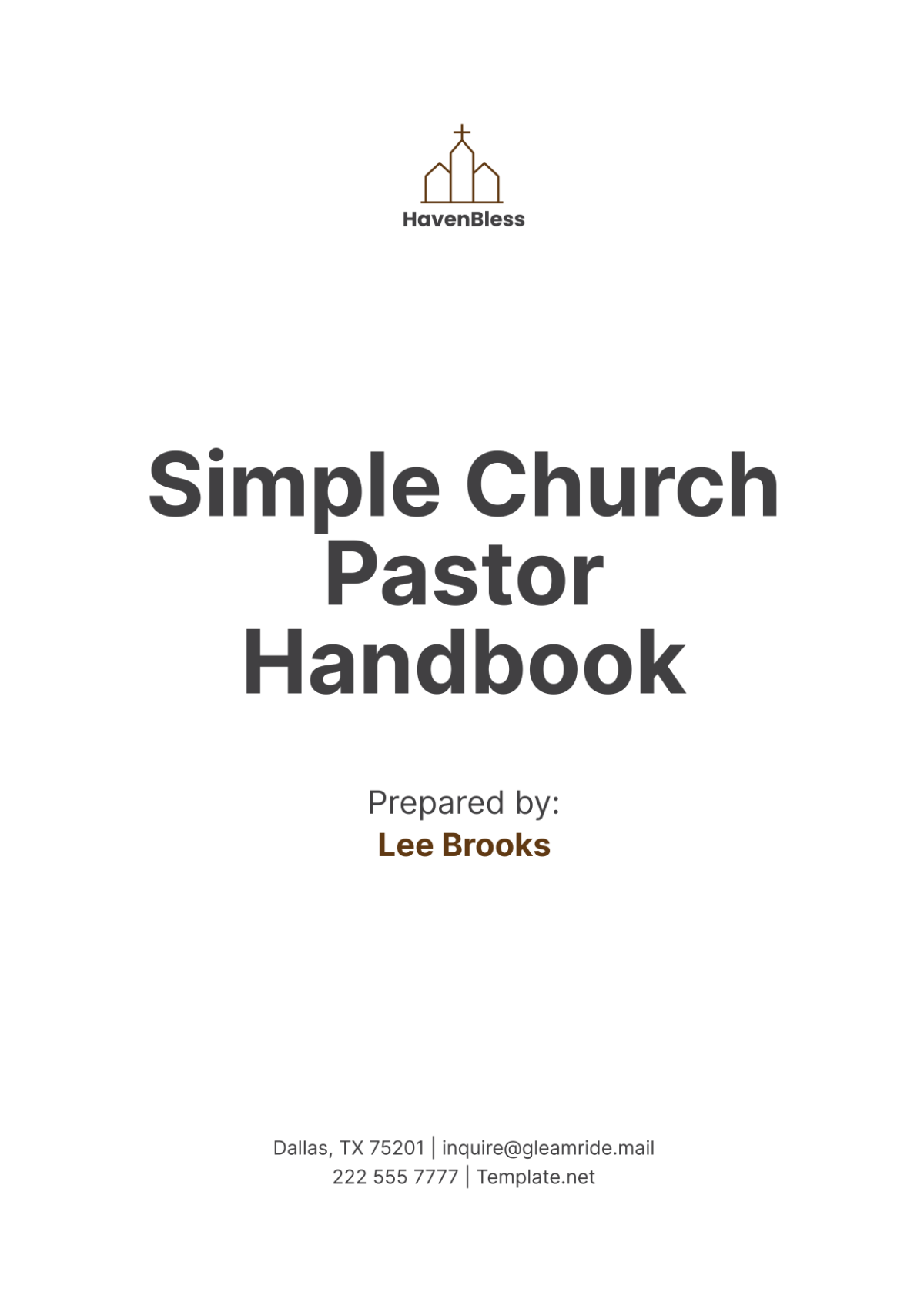
I. Introduction
The Pastor's Handbook for [Your Company Name] is designed to guide pastors in fulfilling their spiritual and administrative responsibilities within the church community. This handbook provides essential information and resources to support pastors in leading worship, offering pastoral care, managing church operations, and engaging with the community.
By adhering to the principles and procedures outlined herein, pastors can effectively nurture the spiritual growth of the congregation and maintain the church's operational integrity.
II. Pastoral Ministry
Pastoral ministry encompasses a wide range of duties that are crucial for the spiritual and administrative well-being of the church. This section provides an overview of the core responsibilities of pastors, emphasizing the importance of spiritual leadership and community involvement.
A. The Role of a Pastor
Spiritual Leadership: Pastors are spiritual leaders who guide the congregation in worship, teaching, and pastoral care. They serve as role models, embodying the teachings of Christ in both word and action.
Community Connection: Pastors act as a bridge between the church and the wider community, promoting outreach, engagement, and interfaith dialogue.
Vision Casting: Pastors articulate and communicate the church's vision and mission, setting goals that align with its spiritual and operational objectives. They work with church leadership to develop strategic plans that guide the church’s growth and outreach initiatives.
Conflict Mediation: Pastors address and resolve conflicts within the congregation, promoting unity and reconciliation. They use their skills in diplomacy and empathy to handle disputes and foster a harmonious church environment.
Mentoring and Development: Pastors support the growth and development of other church leaders and emerging pastors. They offer guidance, training, and encouragement to help others fulfill their leadership potential.
III. Pastoral Responsibilities
Pastoral responsibilities extend beyond preaching and teaching to include comprehensive pastoral care and community engagement. This section outlines the key duties of pastors in providing spiritual leadership and fostering a supportive church environment.
A. Spiritual Leadership
Preaching and Teaching: Pastors are responsible for delivering sermons and leading Bible studies that are grounded in scripture, culturally relevant, and spiritually enriching. This involves careful preparation, theological study, and a deep understanding of the congregation's needs.
Pastoral Care: Providing pastoral care involves offering counseling, visiting the sick, comforting the bereaved, and supporting members through personal and spiritual challenges. This ministry of presence is vital for fostering a caring and compassionate church community.
Prayer Leadership: Pastors lead prayer sessions and encourage personal and communal prayer. They help foster a culture of prayer within the congregation, which is essential for spiritual growth and support.
Spiritual Counseling: Offering one-on-one counseling helps individuals address personal, emotional, or spiritual challenges. Pastors provide guidance and support that aligns with biblical principles.
Biblical Exposition: Engaging in in-depth study of scripture allows pastors to provide accurate and insightful interpretations in their teaching and preaching. This scholarly approach ensures that biblical teachings are conveyed with clarity and depth.
B. Worship Services
Service Planning: Collaborating with worship leaders and committees, pastors plan and conduct regular worship services, as well as special events and holiday celebrations. This includes selecting appropriate scripture readings, hymns, and prayers.
Sacraments and Ordinances: Pastors administer sacraments such as baptism and communion, ensuring these sacred rites are conducted in accordance with church traditions and doctrines. These practices are central to the spiritual life of the church.
Music and Liturgy: Overseeing the integration of music and liturgical elements enhances the worship experience. Pastors collaborate with music directors to select hymns and songs that align with the theme of the service.
Ceremonial Duties: Conducting weddings, funerals, and other ceremonies requires sensitivity and respect for tradition. Pastors ensure that these events are conducted with dignity and adhere to the church's practices.
Innovation in Worship: Introducing new elements or practices into worship services can enrich the experience and engage the congregation. Pastors balance innovation with respect for established traditions to enhance worship.
C. Community Engagement
Outreach Initiatives: Leading and participating in outreach programs is essential for extending the church's mission into the community. This includes organizing charitable activities, supporting local causes, and fostering relationships with community organizations.
Interfaith Relations: Building and maintaining positive relationships with leaders of other faith communities promotes mutual understanding and cooperation. Pastors engage in dialogue and collaborative activities that contribute to social harmony and respect for diversity.
Local Partnerships: Establishing partnerships with local businesses, schools, and organizations supports community development and extends the church’s influence. These partnerships can provide resources and opportunities for collaborative initiatives.
Advocacy and Social Justice: Addressing social justice issues and advocating for marginalized groups reflects the church’s commitment to justice and equality. Pastors lead efforts to address systemic issues and support social change.
Volunteer Mobilization: Encouraging congregation members to participate in community service and outreach programs enhances the church’s impact. Pastors organize and motivate volunteers, helping them find meaningful ways to contribute.
IV. Administrative Duties
Effective church administration is crucial for the smooth functioning of the church and the fulfillment of its mission. This section provides guidelines for pastors in their administrative roles, including governance, policy implementation, and staff management.
A. Church Governance
Board Meetings: Pastors play a pivotal role in church governance by attending and contributing to board meetings. They provide spiritual guidance and practical insights, helping to shape the church's direction and policies.
Policy Implementation: Ensuring that church policies are effectively implemented requires clear communication, oversight, and the establishment of procedures that align with the church's values and objectives.
Strategic Planning: Engaging in strategic planning helps set long-term goals and priorities for the church. Pastors work with church leaders to develop and execute plans that support the church’s vision and mission.
Annual Reports: Preparing and presenting annual reports provides transparency and accountability regarding the church’s activities and finances. Pastors review and summarize the church’s achievements and challenges over the year.
Regulatory Compliance: Ensuring that the church complies with legal and regulatory requirements is essential for maintaining its status and operations. Pastors oversee adherence to relevant laws and regulations, including financial reporting and employment practices.
B. Financial Oversight
Budget Management: Pastors work with financial committees to develop and manage the church budget, ensuring that financial resources are allocated wisely and transparently.
Fundraising and Stewardship: Leading stewardship campaigns and fundraising efforts is essential for sustaining the church's programs and facilities. Pastors encourage responsible giving and financial stewardship among the congregation.
C. Staff and Volunteer Coordination
Team Leadership: Pastors oversee church staff and volunteers, providing guidance, support, and training. They foster a collaborative and inclusive work environment that enhances the church's ministry and outreach efforts.
Conflict Resolution: Addressing conflicts and issues within the church community requires diplomatic skills and a compassionate approach. Pastors mediate disputes and work towards reconciliation, ensuring a harmonious church environment.
V. Continuing Education and Professional Development
Ongoing education and professional development are vital for pastors to stay informed about theological, social, and administrative developments. This section emphasizes the importance of lifelong learning and skill enhancement.
Program | Focus Area | Provider | Cost |
|---|---|---|---|
Master of Divinity (M.Div.) | Advanced theological study | Local Seminary/University | $15,000/year |
Certificate in Pastoral Care | Specialized pastoral skills | Online Theological Institute | $1,200 |
Workshop on Homiletics | Preaching and sermon writing | Denominational Conference | $500 |
Ethics in Ministry | Ethical issues and dilemmas | Regional Retreat Center | $700 |
A. Theological Education
Continued Study: Engaging in continued theological study helps pastors deepen their understanding of scripture, doctrine, and ethical issues. This knowledge is crucial for effective preaching, teaching, and pastoral care.
Workshops and Seminars: Participating in workshops and seminars offers opportunities for pastors to learn new skills, stay current with ministry trends, and network with peers.
B. Schedule for Continued Study and Workshops
Class/Workshop | Topic | Date | Location |
|---|---|---|---|
Biblical Exegesis Seminar | Advanced interpretation methods | [Month Day, Year] | Local Seminary |
Church Leadership Workshop | Effective leadership strategies | [Month Day, Year] | Church Conference Hall |
Pastoral Counseling Certification | Counseling techniques | [Month Day, Year] | Online Course |
Digital Ministry Training | Utilizing technology in ministry | [Month Day, Year] | Regional Conference |
Conflict Resolution Seminar | Mediation skills for pastors | [Month Day, Year] | Church Retreat Center |
C. Personal Development
Spiritual Growth: Maintaining a personal spiritual practice is essential for pastors to sustain their ministry and serve as authentic role models. This includes prayer, meditation, and spiritual retreats.
Health and Well-being: Pastors are encouraged to take care of their physical and mental health, recognizing that self-care is integral to their ability to serve the congregation effectively.
Leadership Development: Engaging in leadership development programs helps pastors refine their skills and adapt to changing ministry needs. This includes attending leadership retreats, reading relevant literature, and seeking mentorship.
The Pastor's Handbook is a resource for supporting pastors in their multifaceted role within [Your Company Name]. By following the guidelines and principles outlined in this handbook, pastors can lead with integrity, compassion, and wisdom, contributing to the growth and vitality of the church community.
- 100% Customizable, free editor
- Access 1 Million+ Templates, photo’s & graphics
- Download or share as a template
- Click and replace photos, graphics, text, backgrounds
- Resize, crop, AI write & more
- Access advanced editor
Provide essential information with the Simple Church Pastor Handbook Template from Template.net. This editable and customizable template features a straightforward and organized design, ideal for creating a handbook for church pastors. The layout includes sections for church policies, responsibilities, and procedural guidelines, ensuring a practical and informative resource.
